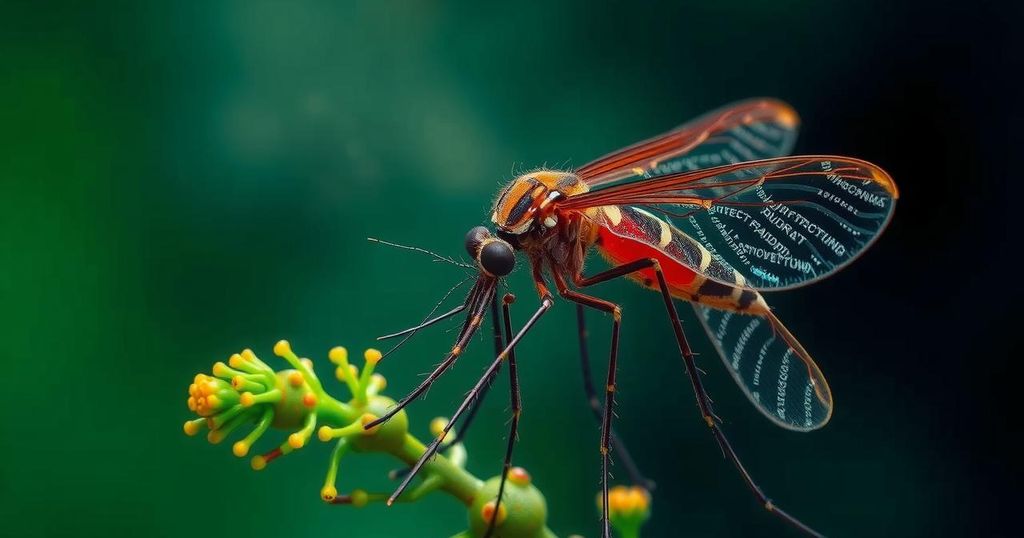Rising temperatures due to climate change are significantly increasing the incidence of dengue fever, with projections suggesting that nearly 20% of infections are connected to global warming. Regions like Peru, Mexico, and Brazil may see dengue cases surge by over 150% due to optimal conditions for mosquito proliferation, necessitating urgent climate action and public health measures.
Rising global temperatures are contributing to an unsettling surge in dengue fever cases, a mosquito-borne disease that can result in serious health complications or fatalities. A recent study attributes nearly 20% of dengue infections across the globe to climate change, projecting this percentage could triple by the year 2050 if greenhouse gas emissions remain unchecked. The findings suggest that rising temperatures are favoring the conditions for the Aedes aegypti mosquito, the primary vector for dengue, leading to higher transmission rates. Specifically, researchers indicate a temperature “sweet spot” of approximately 84°F (29°C) where dengue transmission peaks, which is becoming increasingly common in endemic regions such as Peru, Mexico, and Brazil. Public health experts express grave concern over this warming trend, particularly in these regions where the potential for dengue infections could surge by more than 150% in the coming decades. While warmer climates facilitate mosquito reproduction and enhance the virus’s replication within mosquitoes, extremely hot conditions, such as in southern Vietnam, could lead to decreased mosquito populations. Additionally, the interplay of climate change and increased international travel poses a risk for the expanded spread of dengue into temperate regions. Mitigating this imminent threat requires a concerted effort to reduce carbon emissions, as estimated reductions could prevent millions of dengue cases in the future. Furthermore, controlling mosquito breeding habitats and implementing robust public health strategies will be invaluable in curbing the disease’s spread. Significantly, urbanization, poverty, and deforestation create conducive environments for mosquitoes, particularly in regions with inadequate sanitation facilities. Promising interventions, such as introducing Wolbachia bacteria into mosquito populations, have shown notable success in reducing dengue transmission in certain parts of Brazil; however, the implementation of such strategies necessitates time and dedicated effort to yield sustainable outcomes. As the planet continues to warm, increasing attention must be dedicated to protecting vulnerable communities and bolstering healthcare systems. Individuals can also contribute by adopting simple preventive measures such as wearing protective clothing and using insect repellents. The ongoing rise in dengue cases reinforces the vital connection between climate change and public health, thereby emphasizing the urgent necessity for integrated environmental and healthcare interventions.
Dengue fever is a mosquito-borne illness transmitted primarily by the Aedes aegypti mosquito. The disease is endemic in tropical and sub-tropical regions, where environmental factors such as temperature and humidity significantly influence mosquito life cycles and the transmission of the virus. Climate change is expected to alter these environmental conditions, potentially leading to an increased incidence of dengue cases globally. Understanding the relationship between climate patterns and disease transmission is crucial for public health planning and response strategies.
In conclusion, the alarming rise in dengue fever cases is being exacerbated by climate change, particularly through the impact of increasing global temperatures on mosquito populations. With projections suggesting a potential tripling of dengue-related infections by 2050, it is imperative to address the underlying factors contributing to this growth, including greenhouse gas emissions and environmental conditions conducive to mosquito breeding. Integrated efforts combining climate action and public health strategies will be essential in mitigating the spread of dengue and protecting global health.
Original Source: www.natureworldnews.com






